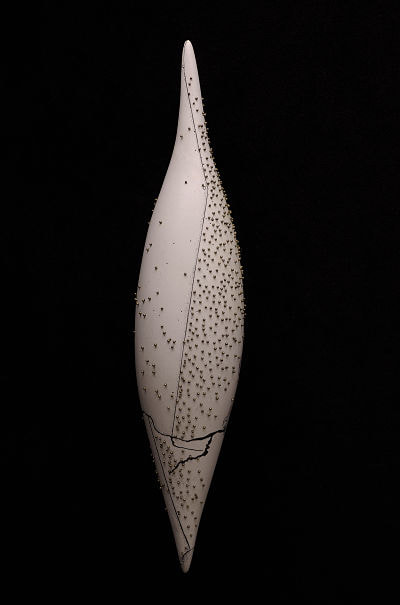I come from relatively recent immigrants, and married into a family of immigrants as well. One set of grandparents was born In Ireland and the other in Lithuania; they came over here through Ellis Island as adults and settled in communities of others like them. My grandparents and aunts and uncles all spoke two, sometimes three languages. They encountered severe discrimination and some of them felt shame about their origins, accents and language skills. They worked in laundries and on delivery trucks. My aunt Mary lost her arm in a mangle, and would not go back to Ireland to visit because she didn’t want the family there to see what had happened to her here. They had come over on boats to find a better life. Their children flourished. I married into a Hungarian family; my husband was the first to be born here. Krusoe is an Ellis Island name.
I lived in Southern California until I moved to Oregon in 1990. Most of my experience is with people who have immigrated from Mexico, or who migrate seasonally. My family also went south over the border yearly, so I have a sense of human and cultural fluidity. One time, we walked down a street in Puerto Vallarta when it was a village, and everyone was sitting outside their doors. It was evening, and cool and fragrant with blooms from the river and jungle. As we passed the houses, one after another, people murmured a greeting. I remember it as “dias,” the same one word, over and over, dias, dias, dias, almost whispered. When I think of what it has always felt like to have people from Mexico and South America move among us, it is like that murmur.
My pieces in Beyond Borders: Stories of im/Migration reflect that movement, that murmur, which has always felt like an embrace. I have focused on the part of migration that is about the search for food and home, a moving-toward rather than a flight-from. The cruelties and injustices are something I did see as well: the cramped workers’ camps, the short-handled hoes, the bent backs. Men in groups on street corners, waiting for work. Women in affluent neighborhoods, waiting for buses. And I have read about the things I have not seen: the flight from unspeakable suffering, destroyed homes, and danger; and border crossings: death in the desert, in the river, in trucks.
My pieces in Beyond Borders: Stories of im/Migration reflect that movement, that murmur, which has always felt like an embrace. I have focused on the part of migration that is about the search for food and home, a moving-toward rather than a flight-from. The cruelties and injustices are something I did see as well: the cramped workers’ camps, the short-handled hoes, the bent backs. Men in groups on street corners, waiting for work. Women in affluent neighborhoods, waiting for buses. And I have read about the things I have not seen: the flight from unspeakable suffering, destroyed homes, and danger; and border crossings: death in the desert, in the river, in trucks.


 RSS Feed
RSS Feed